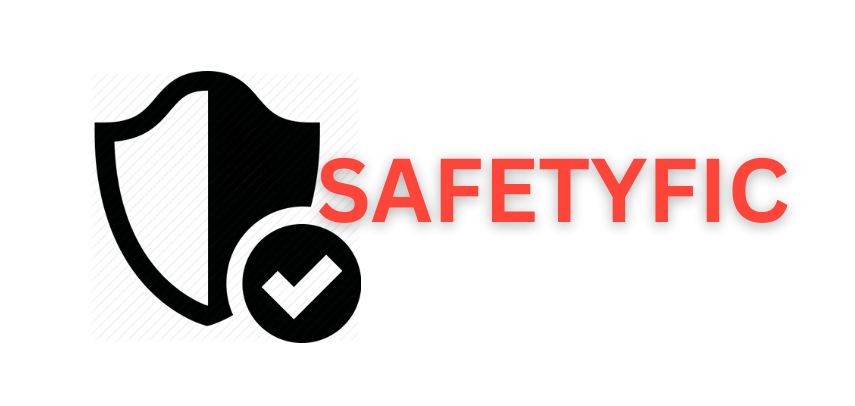Close your eyes and imagine walking down the street. There seems to be no one there, but you know better. You look up, and there it is – a CCTV camera staring right at you. What if it isn’t just capturing your movements but also what you are saying? This crime-busting tool, which is essential to keeping us all safe, has lately been the cause of worry.
CCTV audio can sometimes be intrusive and give rise to privacy concerns. People are often unaware that they are being recorded even while their conversations are being tracked. So, if you’re looking to keep your words private, here’s how to block CCTV audio.
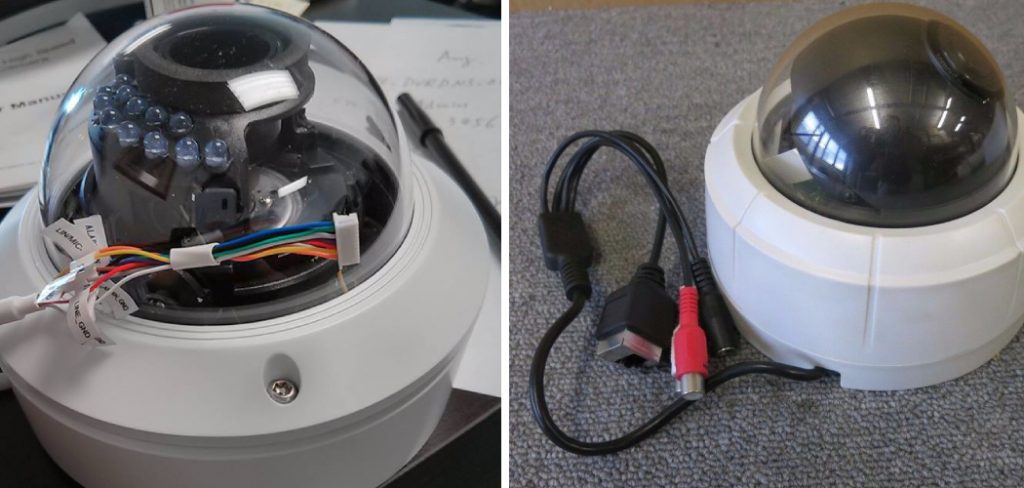
Can You Block CCTV Audio?
CCTV cameras have become ubiquitous in the modern world, and while they can be great tools for improving security, the idea of being constantly watched and listened to can be unsettling. Many people wonder if it’s possible to block the audio component of CCTV feed. While it’s technically possible, it’s also illegal in many jurisdictions.
In some cases, it may be necessary to work with the camera owner to come to an agreement on privacy concerns rather than attempting to unilaterally disable audio recording. Regardless of the approach, it’s essential to understand the rules surrounding CCTV and privacy to ensure that you stay on the right side of the law.
Why Should You Block CCTV Audio?
When it comes to surveillance systems, CCTV cameras are a common sight. However, did you know that some CCTV systems also record audio? This means that not only can they capture your movements, they can also eavesdrop on your conversations. Protecting your privacy is important, and blocking CCTV audio is one way.
Not only that, but some countries have laws and regulations surrounding audio recording without consent. If you want to ensure that your conversations remain private and you comply with relevant laws, consider blocking CCTV audio. Protecting your privacy can give you peace of mind and prevent potential legal issues.
Safeguard Your Privacy: Here’s How to Block CCTV Audio
1. Use a Soundproof Box
Using a soundproof box is one of the most effective ways to block out audio from CCTV cameras. A soundproof box is a device that is designed to absorb and dampen sound waves, preventing them from reaching the microphone of the CCTV camera. The box should be made of thick material such as wood or metal and large enough to completely cover the camera and its microphone.
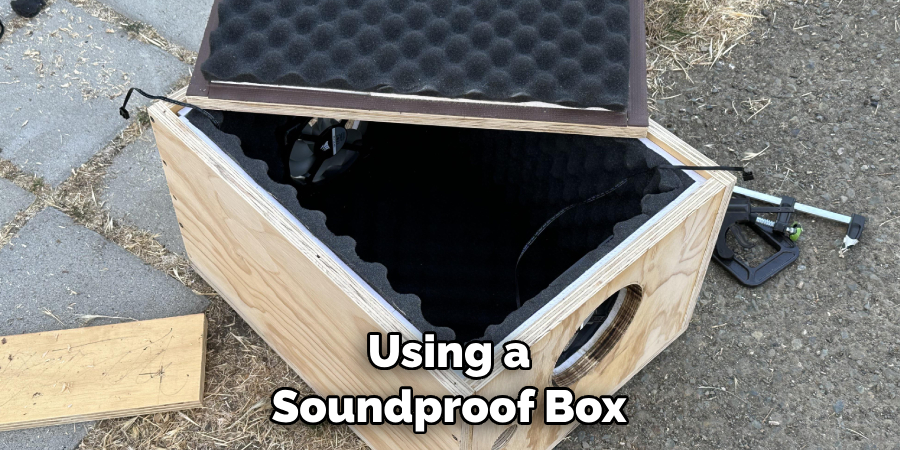
2. Use White Noise
White noise is another effective way to block out audio from CCTV cameras. White noise is a type of sound that contains all frequencies at equal intensity, making it difficult for microphones to pick up any specific sounds. You can purchase white noise machines or install white noise apps on your phone to generate this sound and mask any audio from nearby CCTV cameras.
3. Cover the Microphone
Covering the microphone of a CCTV camera is another simple yet effective way to block out audio. You can use tape, foam, or other materials to cover the microphone so that it cannot pick up any sounds in the area. This method may not work if you are dealing with multiple CCTV cameras in an area, but it can effectively block out audio from just one camera.
4. Install Acoustic Foam
Installing acoustic foam around the area where you want to block out audio from CCTV cameras can also help reduce sound levels significantly. Acoustic foam absorbs sound waves and prevents them from reaching nearby microphones, which makes it an effective way to reduce audio levels in an area without having to cover every single camera’s microphone individually.
5. Install Sound-Absorbing Panels
Another option for blocking out audio from CCTV cameras is installing sound-absorbing panels around the area where you want to reduce sound levels. These panels are made of thick materials such as wood, metal, or plastic that absorb sound waves before they reach nearby microphones, making them an effective way to reduce overall noise levels in an area without having to individually cover each camera’s microphone with tape or foam.
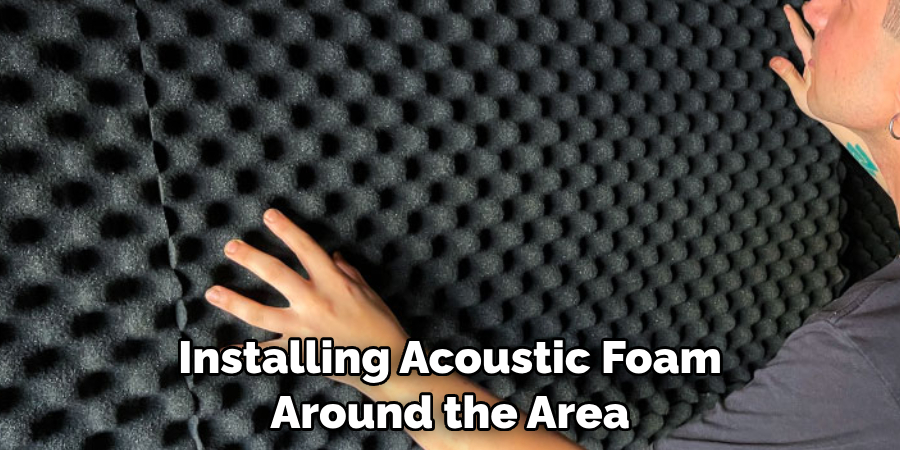
6. Place Objects Between Cameras and Microphones
Placing objects between CCTV cameras and their microphones can also help reduce overall noise levels in an area without having to cover each individual camera’s microphone with tape or foam.
Objects such as furniture or plants can act as barriers between microphones and sources of loud noises, helping reduce overall noise levels without having to take more drastic measures like covering each individual camera’s microphone with tape or foam.
7. Use Electronic Jamming Devices
Finally, electronic jamming devices are another option for blocking out audio from CCTV cameras in an area without having to take more drastic measures like covering each individual camera’s microphone with tape or foam.
Electronic jamming devices emit signals that interfere with nearby microphones and prevent them from picking up any sounds in the vicinity, making them an effective way to block out audio from multiple CCTV cameras at once.
That’s it! Using various methods, You’ve learned how to block out audio from CCTV cameras. Whether you’re trying to reduce overall noise levels in an area or prevent a single camera’s microphone from picking up audio, these tips should help you find the right solution for your needs. With enough patience and effort, you can easily block out audio from CCTV cameras in no time!
5 Considerations Things When You Need to Block CCTV Audio
1. Audio Quality
When choosing a CCTV audio blocker, it is important to consider the quality of the audio that will be blocked. Some blockers are designed to block low-quality audio, while others are designed to block higher-quality audio. It is important to choose a blocker that is capable of blocking the type of audio you need to prevent from being heard.
2. Signal Strength
Another consideration when selecting a CCTV audio blocker is the strength of the signal that needs to be blocked. If the signal strength is too low, then it may not be effective in blocking the audio from being heard. Conversely, if the signal strength is too high, then it could cause interference with other devices in your area.
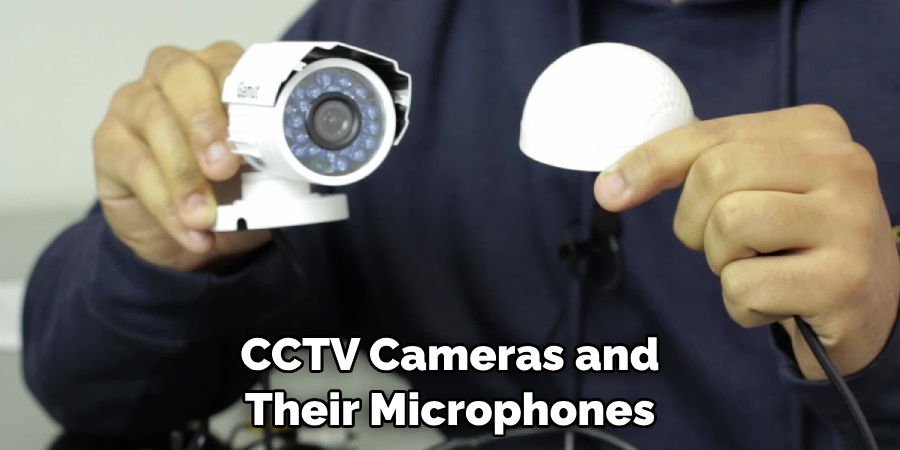
3. Frequency Range
The frequency range of a CCTV audio blocker should also be taken into account when making a selection. The frequency range determines how much sound can be blocked within a particular range of frequencies. A wider frequency range will allow for more sound to be blocked, while a narrower frequency range will only block certain frequencies within that range.
4. Cost and Ease of Installation
The cost and ease of installation are also important factors when selecting an audio blocker for your CCTV system. Some blockers are more expensive than others and may require professional installation or special tools for setup and operation.
Additionally, some blockers may require additional hardware or software to function properly, so these costs should also be considered when selecting.
5. Compatibility
Finally, it is important to ensure that any potential CCTV audio blockers you select are compatible with your existing security system and cameras. Many blockers come with specific compatibility requirements or limitations that must be taken into account before purchase or installation can occur successfully.
Blocking audio from CCTV cameras can be a tricky process, but with the right considerations in mind, it is possible to find an effective solution that meets all of your needs.
Be sure to consider the quality, signal strength, frequency range, cost, ease of installation, and compatibility before selecting. With the right blocker in place, you can rest assured that the audio from your CCTV system will remain secure.
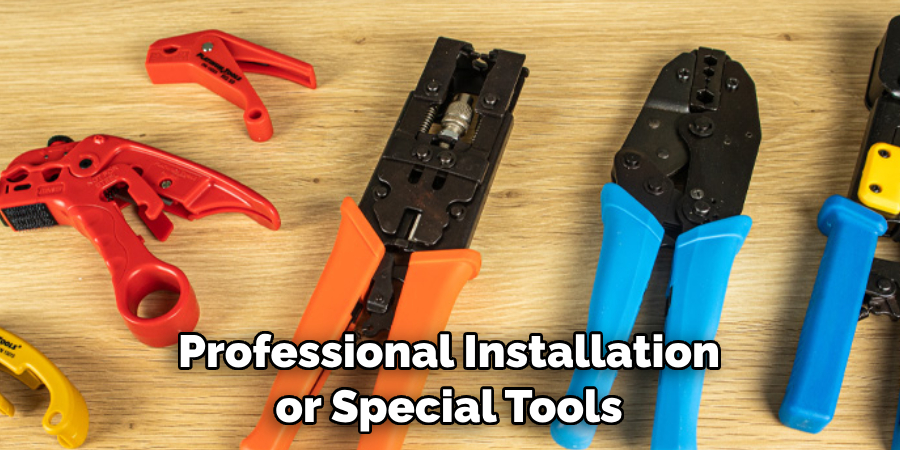
Benefits of Block CCTV Audio
Adding audio recording capability to your CCTV system brings many benefits beyond just capturing visuals. Block CCTV Audio technology can provide valuable context and insights for surveillance and security purposes.
Auditing audio alongside visual footage makes it possible to detect sounds such as breaking glass, alarms, and even conversations, which can provide crucial evidence in investigations.
Additionally, audio can help to confirm the identity of individuals on camera and bring a greater level of accountability to certain situations. With Block CCTV Audio, you can further enhance your security measures and gain a fuller picture of what is happening within your premises.
Some Common Mistakes People Make When Trying to Block CCTV Audio
These days, it seems like everyone is concerned about their privacy. With the abundance of cameras monitoring our every move, it’s understandable that people want to take measures to protect themselves. One common tactic is trying to block the audio on CCTV cameras.
However, this is easier said than done. Some people make the mistake of putting tape over the microphone, but this hardly ever works. Others make loud noises or play music to drown out any potential audio recording. While this may seem like a great idea in theory, it’s not practical.
Not to mention, it’s likely to draw unwanted attention. The truth is, there is no surefire way to block CCTV audio completely. It’s always better to assume that someone could be listening and adjust your behavior accordingly.
Conclusion
While it’s essential to prioritize safety in public spaces, it’s understandable to want to keep our conversations private. The rise of CCTV cameras’ audio recording feature presents a challenge to the privacy-conscious. However, there are options you can try to block the audio recording.
While some methods may work, it’s important to remain aware of your surroundings and speak with discretion when in public places. Take a proactive approach to safeguarding your privacy, and you can walk confidently through the streets, secure in knowing your words are safe from intrusive recording. Thanks for reading our post about how to block CCTV audio.
About
Safety Fic is a distinguished figure in the world of Diy design, with a decade of expertise creating innovative and sustainable Diy solutions. His professional focus lies in merging traditional craftsmanship with modern manufacturing techniques, fostering designs that are both practical and environmentally conscious. As the author of diy, Safety Fic delves into the art and science of Safety Fic-making, inspiring artisans and industry professionals alike.
Education RMIT University
(Melbourne, Australia) Associate Degree in Design (Safety Fic) Focus on sustainable design, industry-driven projects, and practical craftsmanship. Gained hands-on experience with traditional and digital manufacturing tools, such as CAD and CNC software.
Nottingham Trent University
(United Kingdom) Bachelor’s in diyfastly.com and Product Design (Honors) Specialized in product design with a focus on blending creativity with production techniques. Participated in industry projects, working with companies like John Lewis and Vitsoe to gain real-world insights.
Publications and Impact
In diy, Safety Fic his insights on indoor design processes, materials, and strategies for efficient production. His writing bridges the gap between artisan knowledge and modern industry needs, making it a must-read for both budding designers and seasoned professionals.
